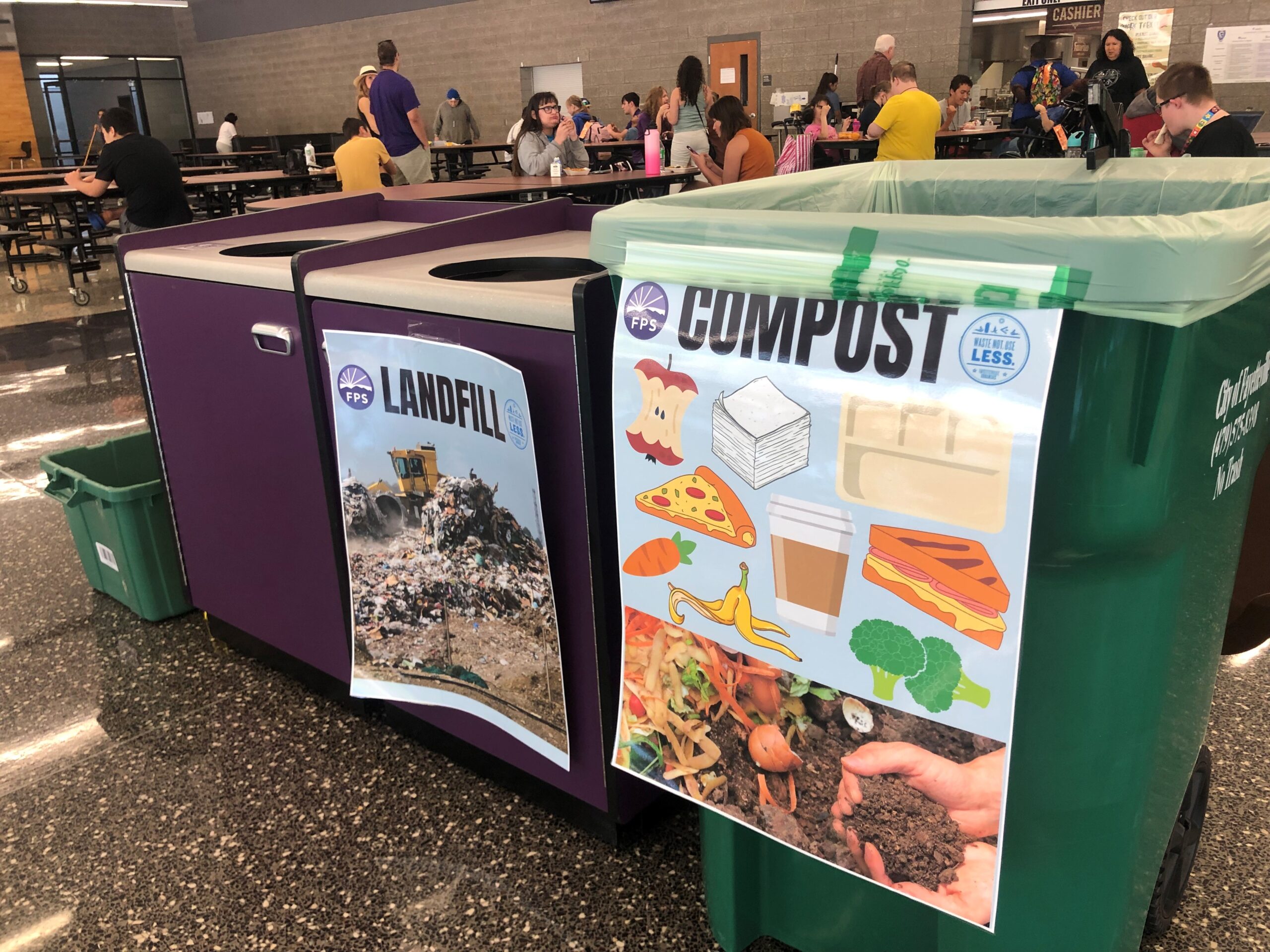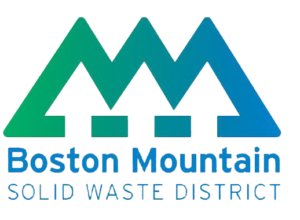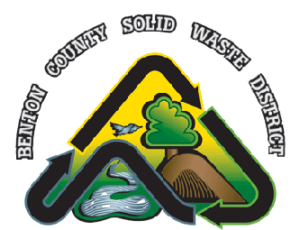Uneaten fries, fruit peels and other food scraps from Fayetteville High School lunches are getting composted instead of landfilled, thanks to a monthslong effort by several students.
Starting this semester, the cafeteria’s waste stations give students three options, with food waste bins joining the usual recycling and trash. The city of Fayetteville collects all three waste streams and takes them to the city’s waste facility in the southeast part of town, where a multi-month process converts the food waste into earthy, nutrient-rich compost for gardeners and farmers.
The new initiative stretches back to 2022, as several students involved in the project told the School Board in April. Each year several AP environmental science students choose a long-term project. Food waste in particular caught their eye.
“Throughout our high school experience, we have seen a huge amount of uneaten food thrown away with our lunches,” said Abby Allison, a senior at the time.
With the help of teacher Clay Morton as well as city representatives, custodial staff and other interested classmates, the students last spring organized a waste study over the span of three lunches. Volunteers collected and sorted half a ton of garbage and found that more than half of it could have been composted.
The class then presented its findings to school and district officials, saying collecting food waste for composting would save hundreds of dollars a month in trash bills and could be replicated in other schools over time. The pitch worked.
“Other than just some guidance, they have taken the ball and run with it,” Morton told the board. As board member Justin Eichmann put it, “You’ve made it so it’s a no-brainer.”
Student volunteers are still crucial to the project, taking up positions by waste stations after eating to help educate their peers and direct them to the correct receptacles. Some have voiced interest in taking the idea on the road and guiding their younger peers, said Emma Armendariz, the district’s sustainability and bike education coordinator.
“Whenever I go to a bin, people don’t want to talk to me,” she said with a laugh. “They are way more willing to talk to other students.”
Sylvia Smith, a junior who was part of the original environmental science group, said some students are excited about the compost option, others indifferent, and still more are curious to learn more about composting in general, especially its benefits.
“I just think it’s really important for Fayetteville High School, and for moving forward into a greener future,” Smith said.














